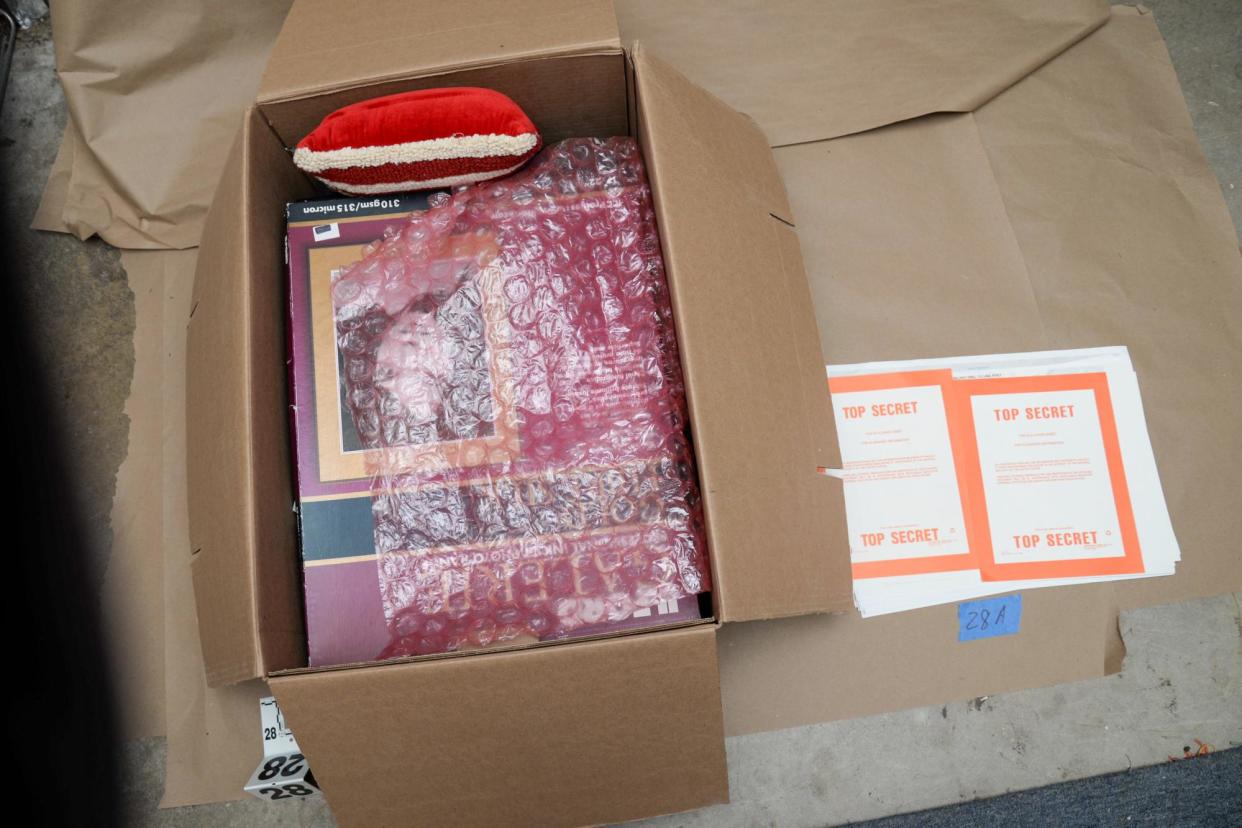Prosecutors reject Trump’s bid to toss documents case due to ‘haphazard storage’

Special counsel prosecutors scoffed at Donald Trump’s claim that the classified documents case should be tossed because the order of documents in the boxes were slightly changed, arguing in a Monday night court filing it did not matter since the contents of the boxes were already so haphazardly stored.
“Trump personally chose to keep documents containing some of the nation’s most highly guarded secrets in cardboard boxes along with a collection of other personally chosen keepsakes of various sizes and shapes from his presidency” prosecutors wrote.
“At the end of his presidency, he took his cluttered collection of keepsakes to Mar-a-Lago, his personal residence and social club,” prosecutors described, adding: “After they landed in stacks in the storage room, several boxes fell and splayed their contents on the floor.”
Related: Judge in Trump classified documents case weighs gutting evidence
The 33-page filing submitted by prosecutors was partly a defense of the Federal Bureau of Investigation agents who retrieved 101 classified documents from the Mar-a-Lago club in August 2022 and their concession that some were recorded slightly out of order, and partly to ridicule Trump’s legal arguments.
It also gave prosecutors an opportunity to make public previously unseen photographs of how the FBI found the classified documents, commingled with white-and-black striped golf shirts, a hardcopy of a New York Times story about his dealings with Deutsche Bank, cases of Diet Coke, and red Maga hats.
In doing so, prosecutors pressed their argument that it could not possibly matter that a number of documents, after being sent back to the FBI Washington field office from Mar-a-Lago, fell out of order compared to when they were initially found.
“The boxes contained all manner of items, including, for example, papers of varying sizes, from folded large-format items to tiny notes; clothing; picture frames; shoes; magazines; newspapers; newspaper clippings; correspondence; greeting cards; binders; and Christmas ornaments,” the filing said.
“The notion that the precise ordering of materials within these boxes possessed any exculpatory value that would be apparent to the Filter Team when they opened the boxes is absurd,” it added.
The filing from prosecutors came after Trump’s lawyers asked the presiding US district judge Aileen Cannon to dismiss the charges because evidence was spoiled, contending that it negatively affected their ability to make a defense argument that Trump did not know the boxes contained classified documents.
Trump was indicted last year on charges he wilfully retained national security documents and, together with his employees Walt Nauta and Carlos De Oliveira who are co-defendants, obstructed the investigation by playing a “shell game” to hide the boxes after he was subpoenaed for their return.
The Trump lawyers argued that two of their potential defense arguments were to claim Trump did not know whether the boxes contained documents if they were not on the top of the pile of contents, and that if they were mixed with years-old newspapers, then it would suggest they were placed there at the time.
Prosecutors disagreed that the only remedy was now to dismiss the charges.
“To the extent a charged document’s location in the same box as materials from a given timeframe might enable Trump to argue that such proximity supports an inference that he placed the document into the box at around the same time, he remains free and able to do so because box-to-box integrity has been preserved,” the prosecutors wrote.

 Yahoo News
Yahoo News 
